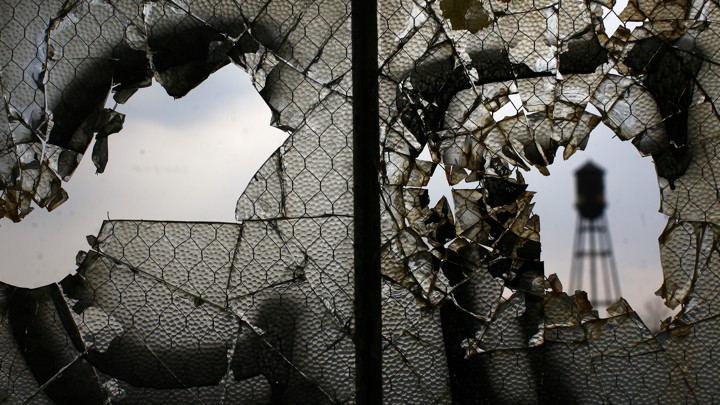Detroit’s Water Crisis Is a Wake-up Call to All Americans

The US cannot credibly advocate for human rights abroad while failing to protect them at home.
A decade ago, I joined a group of human rights advocates to found the National Economic and Social Rights Initiative to promote freedom from poverty and access to basic resources in the United States. The idea for the project seemed far-fetched to many. After all, the U.S. is a rich country, and human rights are widely seen as a foreign policy issue, not a domestic concern.
But with the threat looming over 100,000 Detroit residents of losing access to something as basic as water, our endeavor now appears prescient.
Detroiters have been fighting for a right to water for years. The Michigan Welfare Rights Organization succeeded in getting the Detroit City Council to adopt the Water Affordability Program in 2005 to create a safety net allowing low-income residents to pay on the basis of their income. The plan was gutted by Victor Mercado, head of the Detroit Water and Sewage Department at the time, who later pleaded guilty to conspiracy in one of the biggest public corruption trials in city history — the rigging of municipal contracts by former Mayor Kwame Kilpatrick and associates.
Without a progressive water rate in place ensuring that all families could afford water, this March the city threatened to shut off water service to thousands of families every week while increasing the water rate. Ultimately hundreds of thousands of people could have been affected, since 80,000 households were in arrears.
Fortunately, amid strong efforts by local activists and national and international allies, the city’s emergency manager on July 29 returned control over the Detroit Water and Sewage Department to the mayor and city council. Residents hope city officials will enact an affordability plan that will cap a household’s water bills on the basis of income.
There is no guarantee for Detroiters, however, that this hand-off will be permanent or that it will result in affordable access to water. In fact, Mayor Mike Duggan has a history of supporting privatization, with the sale of the nonprofit Detroit Medical Center to a for-profit hospital conglomerate in Virginia. That the issue is still in doubt demonstrates our country’s continuing inability to meet the demands of human rights and social justice.
Austerity amid plenty
Water is one of the things I fondly remember about Detroit. My mother was raised there, and her father worked on an assembly line for Chevrolet for 30 years, back when you could raise a family, however modestly, on a manufacturing job’s wages. I spent part of my childhood in Detroit — more specifically in Highland Park, a city within the city that is, if it can be believed, even more economically disadvantaged than the larger metropolitan area. My family took pride in the drinking water, attributing its crisp, refreshing taste to the proximity of the Great Lakes.
We moved to New York City in the 1980s, when things begun to feel truly desperate and there were no jobs to be found in Detroit. Over the years, I have witnessed the city of my childhood sink into despair, including massive unemployment, property devaluation, population depletion, blight, rampant arson, political corruption and crime. I have also seen American families like ours fall from the ranks of the middle class, even as the country as a whole has gotten wealthier, companies report record profits and the richest 1 percent enjoy greater and greater prosperity.
Among the cruel ironies of this current crisis of water shut-offs and the growing number of Americans living on the brink in Detroit and around the country is the reality that these hardships are mounting in a context of plenty. Michigan always had water in abundance.
The denial of water to Detroiters raises poignant questions about America’s ever-growing inequality. The entire episode is reminiscent of the debate on race and inequality after Hurricane Katrina in 2005, when the public abandonment of poor and black New Orleanians appalled the nation. While the episode has faded from popular consciousness, the deepening injustice continues apace.
Demanding our rights
Detroit’s bankruptcy and subsequent state-run emergency management system are not excuses to suspend human rights. In the age of growing privatization of public services in the U.S., it is more important than ever for Americans to assert that their fundamental rights are not for sale.
International human rights laws have explicit standards regarding access to water. They also protect access to health care, education, housing and safe working conditions. These rights are not based on our wealth, race, religion, sexual orientation, immigration status or city of residence. They belong to all people.
Recently, as I marched in the streets of downtown Detroit during a demonstration against the water shut-offs, I heard people express disbelief that we have reached the point of having to shout, “What do we want? Water! When do we want it? Now!”
The water crisis in Detroit is a wake-up call. The list of shockingly basic resources that Americans are forced to fight for continues to grow. We must all take stock and demand a halt to the erasure of our basic human rights.
